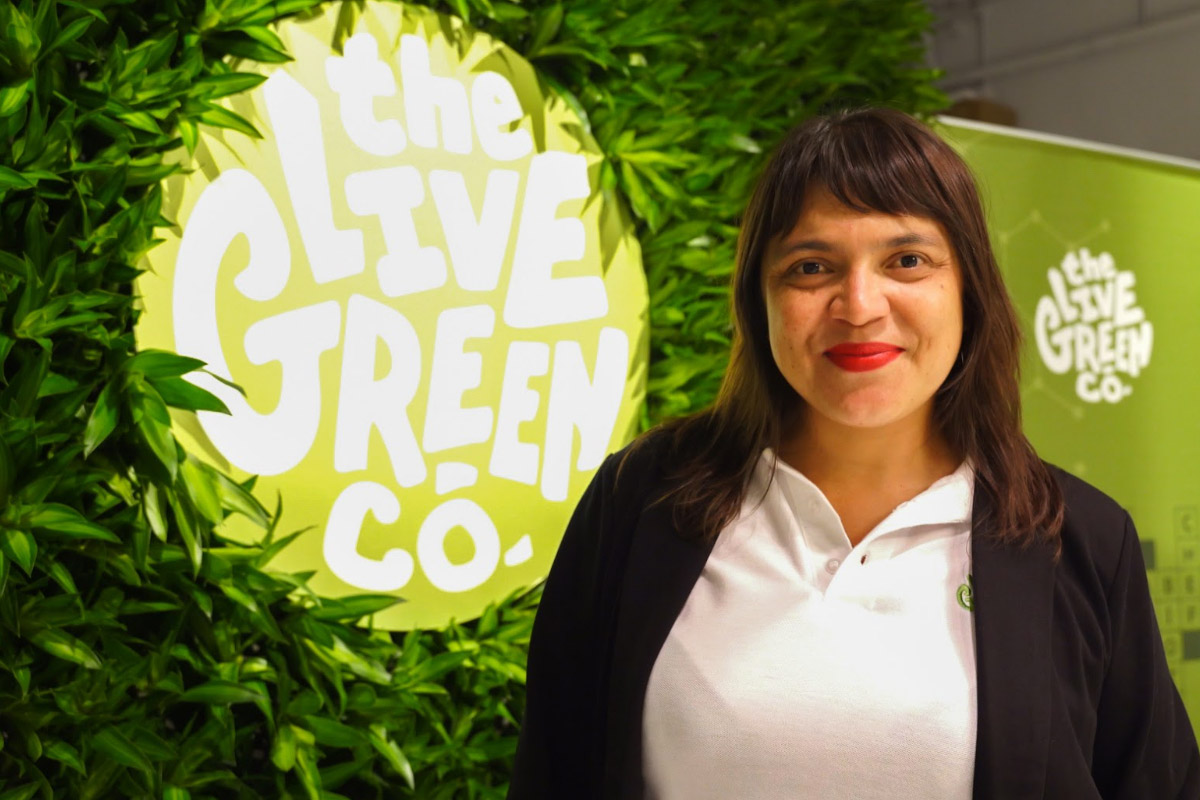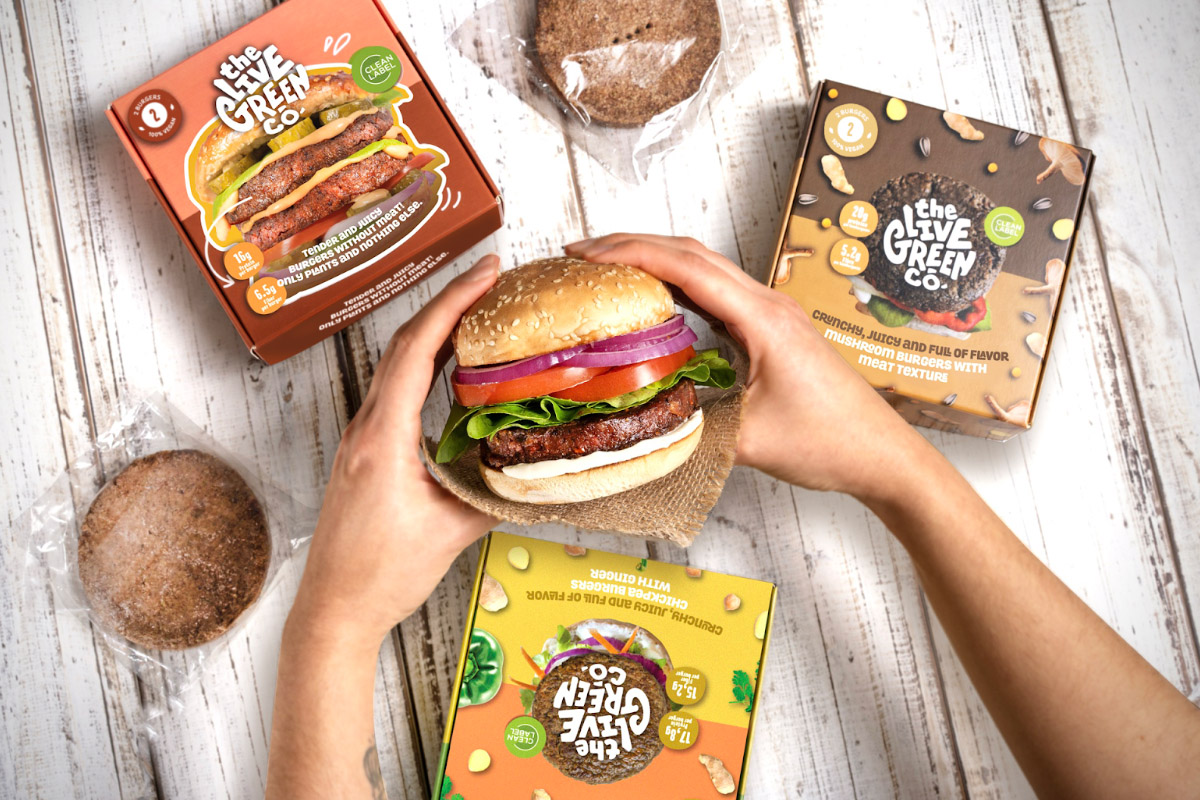June 30, 2022
To get back to the way things were, we must look to the future. Live Green Co’s A.I. ‘Charaka’ develops healthy, ethical, 100% natural foods that help make meat obsolete. Luke Wilkinson reports.


Vegetarian and vegan foods frequently offer one thing but not the other: healthy and boring, or delicious but lacking in nourishment. They may be better for the environment, but for all the great strides made by the plant-based industry of late, many products still rely on a host of suspicious-looking additives and E-numbers to create food that passes the taste test.
What’s so bad about additives? A recent study in French supermarkets shows that over 50% of foods sold contain at least one or more additives. Surely if we eat them so often they can’t be doing much harm? Well, sadly, they are. Consumption of ultra-processed food (food containing elevated levels of coloring, chemicals, and preservatives) has been linked to a drastic drop in public health, and an increase in early age mortality. All of which means that companies who continue to use these chemicals are doing so at the expense of consumer health. Animal-friendly they may be, but human-friendly? Not so much.
One start up is fighting back against this slide into the ultra-processed: The Live Green Company. This Chile-based business was founded in 2018 by Priyanka Srinivas and Sasikanth Chemalamudi, two Indian entrepreneurs looking to use food tech to make plant-only options that are sustainable, tasty, and free of unnatural elements. Since its outset the company has gone from strength to strength, topping $7 million in its most recent round of funding. So, why are people investing in the success of their products, and how are the products overcoming obstacles where others fall short?
Technology is the answer. ‘Charaka’, Live Green Co.’s artificial intelligence program, is the beating heart of the project, generating recommendations for the ingredients in their products. Carolina Carriel, head of research and development, explains how Charaka replaces additives with natural ingredients to create taste, texture, and function:
“Charaka is a technological platform with a register of more than 15,000 plants, each with their respective functions. For example, we can see that ginger has antimicrobial properties, or that chickpeas have pro-foaming properties - there are more than 50 parameters per plant. We can ask Charaka to replace a certain property, and it will bring us a list of all the different plants that meet the desired characteristics. We try all the alternatives out, give Charaka feedback, and that's how the machine learning system improves. The search gets a little more refined every time."

Carolina Carriel - Head of Research and Development
Live Green has created a whole line of products this way, from ready-made mixes of pancakes and burgers, to ice creams in a range of flavors. It begs the question; how can this be done without using artificial additives?
"For us it's crazy to see how many additives are used in the food industry,” Carriel continues, “there are more than 7000 different types. 70% of the products you find in the supermarket have them. We wanted to focus on the properties of plants in order to replace those additives; in the past people used plants to create the same effects. Live Green is not plant-based, we’re plant only, which means we're not just replacing the additives, we’re actually adding nutritional value."

Another benefit of going ‘plant only’ is taking back our taste buds. The rise of industrial additives and preservatives has robbed us of complexity in our food, keeping us coming back for the same flavors again and again, losing our ability to perceive anything outside of the narrow flavor profiles of ultra-processed foods. "30 years ago, the number of molecules our tongue could detect was much higher,” says Carriel, "but since then the industry has homogenized flavors, so our palates have become much less active. It’s really important to us that we work with varied ingredients, so as to reactivate those atrophied taste buds.”
The push for variety is pulse-forward. Many meat/milk alternatives use soybeans to create their protein, but the start up’s products use a mix of peas, chickpeas, lentils, and Lupin beans, all sourced as locally as possible. “For us, all pulses are just as important as one another,” explains Carriel. “We always choose whichever pulse has the right flavor, properties or function for what’s needed.”

The startup won’t be stopping at burgers and ice cream either; it has much bigger plans. Live Green Co. recently became The Live Green Group, using its technology to create an alliance with different companies within the food industry. These subsidiary companies are bringing further diversity to the product range, including biscuits, energy bars and pulse flours. In June of this year it began a collaboration with Sigma Foods, offering Live Green’s Charaka A.I. as a method for boosting production of plant only-additives across 18 international markets. This move signifies an important distinction between Live Green and other companies; it wants its technology, not just its products, to be the engine of change.
The Live Green Company wants to bring on the ‘Plant Revolution 2.0’, blending ‘ancestral wisdom’ and modern science. With solid fundamentals and a big-brained leader like Charaka, perhaps its revolution could make real, lasting change in the food industry, just when we need it most.
Disclaimer: The opinions or views expressed in this publication are those of the authors or quoted persons. They do not purport to reflect the opinions or views of the Global Pulse Confederation or its members.